It is a lot of work to create a good book proposal, but it is one of the most important aspects of landing a reputable publisher.!
Michael Christian (penname: William Cane) has a helpful website for writing proposals. http://www.hiwrite.com/pro.html There, he explains that the basic parts of a book proposal include the following sections:
Overview
Marketing
Promotion
Competing Books
About the Author
List of Chapters
Chapter-by-Chapter Summary
Sample Chapters
SAMPLE NEW BOOK PROPOSAL
Below is a sample of a complete and exhaustive book proposal for a Christian non-fiction manuscript. It is by David Sanford, a published author, editor, and literary agent for more than 300 books who now serves on the leadership team at Corban University. (Used by permission). There are sections in this sample proposal that you may or may not want to include, or cannot include, but this will give you a good idea of how your own book proposal can catch the eye of an acquisitions editor.
PROPOSED TITLE
If God Disappears:
9 Faith Wreckers and What to Do About Them
AUTHOR
David Sanford
ONE-SENTENCE DESCRIPTION
This book offers encouragement and empowers readers to re-embrace the Christian faith after drifting away from the Lord and from the church.
CATEGORY
Christian Living / Spiritual Growth
AUDIENCE
Primary: The 59 million American adults who are “absolutely committed” to the Christian faith, who don’t ever want to spiritually drift, and who feel deeply concerned when a family member or friend begins to experientially lose his or her faith.
Secondary: The 31 million American adults who have trusted Jesus Christ for salvation, and who say that commitment is still important to them, but who have struggled with faith or relational issues and quit going to church. Also, the 11 million American adults who currently attend church but are not moderately or strongly committed to the Christian faith yet.
PURPOSE AND NEED
Everyone has or will face crises of life and faith. These pivotal times are part of everyone’s spiritual journey. Why then do some people emerge from the crisis with their faith intact while others give up on God, the church, and holy living? Walking through each crisis—while purposefully maintaining our faith—is the key to emerging from the crisis with our faith still vibrant and alive.
Books by George Barna, George Gallup, Jr., et al., have noted the growing American trend toward spiritual drifting. Yet few books specifically address the millions of American Christian adults who are caught in this trend. One of the most important titles, Walking Away from Faith by Ruth Tucker (InterVarsity, 2002), offers a brilliant historical and anecdotal analysis of the problems—but doesn’t offer readers hope.
It takes more than analysis to help readers overcome the perils of faith crises! For every Christian who is spiritually drifting—or is on the verge—or knows someone who is considering leaving God and the church behind—here is the book that compassionately comes alongside readers and empowers them to re-embrace their faith.
This book is written in a popular, conversational style. It’s easily accessible to those who don’t know much about the Bible, yet the book’s message is solidly evangelical, theologically accurate, and culturally informed. The chapters include contemporary real-life stories and insights from a wide spectrum of Christian leaders.
UNIQUE ANGLES
In this book, the author:
- · Presents his own crisis of faith.
- · Shows how prevalent the theme of spiritual drifting is from Genesis to Revelation.
- · Presents compelling biblical reasons why keeping one’s faith is so difficult—yet so imperative.
- · Shows how a wide variety of Christian leaders over the years have experienced a profound crisis of faith, yet persevered and gone on to lead fulfilled lives and effective ministries.
- · Presents many true-life conversations with former church members who have lost their faith.
- · Shows how the American church has often turned a blind eye to these crises of faith and (not inconsequentially) lost half its members this past generation.
- · Presents many encouraging true-life conversations with individuals who have re-embraced the Christian faith after walking away from God and the church.
- · Presents ways to genuinely embrace the Christian faith…for life.
CURRENT INTEREST
The era of “cocoons” is passing. This dominant lifestyle trend started in the late 1980s and provided marketers and advertisers with a guide to the consumer psyche. According to Christian Retailing, the new dominant lifestyle trend is “butterflies,” a metaphor for consumers actively seeking to reconnect with their worlds.
Spiritually, “butterflies” want help openly addressing their past crises of faith—and want assistance reconnecting with God. That’s what If God Disappears is all about!
READER BENEFITS
- The reader will learn how to walk through each crisis of faith without giving up on God.
- The reader will feel the compassion and understanding they have longed to receive from the church. If God Disappears drops the guilt and compassionately addresses the personal, practical, biblical, and theological issues surrounding crises of faith.
- While recognizing their story in the pages of If God Disappears, the reader will discover compelling biblical reasons why keeping one’s faith is so difficult—yet so imperative.
- The wide variety of true stories will encourage and inspire the reader to stay on course with God for years to come.
- The reader will be able to identify the nine ways people drift away from the Lord: religious difficulties, desire for moral license, personal pride, unresolved anger, a lack of heartfelt devotion to God, theological studies divorced from authentic experience, evil and suffering, chronic difficulties, ethical compromises.
- The reader will learn how to turn back to the Lord and keep on course with h
COMPETING WORKS
There are no books on the market today that address the prevalent occurrence of Christians walking out the backdoor of the church, closing their Bibles, and turning their eyes away from God. Though thousands of Christians are tempted to give up on the Christian faith each week, no one has addressed the problem and how to avoid succumbing to “losing” one’s faith.
There are six titles available that address life hardships and the desire to abandon God or the church. They are:
Walking Away from Faith by Ruth Tucker (InterVarsity, 2002). Offers a brilliant historical and anecdotal analysis of the problems—but doesn’t offer readers hope.
Scaling Life’s Summits: Surviving the Climb Without Losing Your Faith by Bill Woolsey and Scott Kaiser (PublishAmerica, 2004). Addresses the “seven dilemmas” that make people question God’s plan for their lives: aging, death, disaster, divorce, guilt, illness, and unemployment—and how the Bible makes it possible to “overcome” these dilemmas. Doesn’t truly address the problem—or solution—of losing one’s faith.
When It Seems All Hope Is Gone: Discover How to Regain Your Faith and Restore Your Life by Richard Roberts (Harrison House, December 2005). Oral Roberts’ son’s story of facing despair and discouragement and yet being restored by God. Emphasis is on God’s healing power in our lives, told through Richard Roberts’ personal story.
Keep On Keeping On: How To Stay Faithful Serving God by Leslie B. Flynn (Magnus Press, January 2005). The author shares how to identify and beat discouragement while serving God in ministry. Doesn’t address losing one’s faith, just burn-out in ministry.
Hope Resurrected: Let God Renew Your Heart and Revive Your Faith by Dutch Sheets (Regal, 2004). Offers the solution to lost hope: drawing near to God in order to get through life’s difficult times.
Walking with God in the Last Days by Ray Hoover (Xulon Press, 2002). Encourages readers to ask themselves if they have faith—not saving faith—but faith that allows you to grow as a Christian.
PROPOSED BACK COVER COPY
What’s the greatest crisis among Christians today? David Sanford, co-author of the Living Faith Bible(Tyndale), God Is Relevant (Doubleday), and How to Read Your Bible (W Publishing Group),contends it’s our inability to talk with each other when we find we’re losing our faith. Not losing our salvation—but losing faith in the Lord, in the Bible, in the church, or in traditional Christian beliefs.
Like most people, you probably have more than one relative or friend who has left the church and experientially lost his or her Christian faith. Maybe it’s been your own experience. Sadly, many people feel their church isn’t a safe place to talk about losing one’s faith. As a result, of the nearly 75 million American adults who have trusted Jesus Christ for salvation, more than 31 million have quit going to church. Thousands more will join their ranks this week.
This book drops the guilt and compassionately addresses the personal, practical, biblical, and theological issues surrounding this crisis.
- Is it really possible to lose your faith?
- Why did so many good people in the Bible lose their faith?
- Why is the theme of keeping the faith so prevalent in the Old and New Testaments?
- How can you help a friend who is struggling?
- What should you do if you experience a personal crisis of faith?
- How can you and I reach out to those who have left the faith?
- Is there hope for a friend or loved one to re-embrace the faith he or she once had?
POTENTIAL ENDORSERS
- Moria Brown (friend, co-host of 100 Huntley Street)
- Pat Williams (friend, senior vice president, Orlando Magic)
- Dr. Steve Stephens (friend, psychologist, best-selling author)
- Dan Kimball (best-selling author of They Like Jesus but Not the Church)
- Paul Byrd (friend, pitcher for the Cleveland Indians, author of Free Byrd)
- Dr. Luis Palau (friend, noted Christian statesman, evangelist, broadcaster, and author)
- William Carmichael (best-selling author, publisher, speaker)
- and many others interviewed for this book including:
George Barna Steve McVey
Dr. Al Baylis Mark Mittelberg
Dr. Steve Brown Daniel Owens
Spencer Burke Dr.Alvin Reid
Gracia Burnham Dr. Tim Robnett
Phil Callaway Floyd Schneider
Scott Dawson Mike Silva
Adam Erwin Stephen Sorenson
Josh McDowell Dr. Marty Trammell
Chip Ingram Rusty Wright
Mark Miller Rick James
Tamara Park Sally Morgenthaler
Jim Palmer Dave Burchett
Julie Woodley Paul Louis Metzger
OTHER DETAILS
- Format: Hardcover with dust jacket
- Word Count: 57,500
- Page Count: 224
- Deadline: Six months after a signed contract
ABOUT THE AUTHOR
David Sanford and his wife, Renée, own Sanford Communications, Inc., a company that works with Christian ministry leaders and publishers to develop life-changing books, Bible-related products, and other Christian resources.
David Sanford was graduated with top honors from Multnomah University. Prior to starting Sanford Communications, Inc., David served as Vice President of Publishing and Internet Ministries for the Luis Palau Evangelistic Association. David also served as Adjunct Professor of Journalism at Corban University and as Instructor of Mass Media at Multnomah Biblical Seminary.
David Sanford is the conceptual designer and executive editor of the Starting Point Study Bible (Zondervan, 2002), a 2003 Gold Medallion finalist for best Bible of the year. In addition, David and Renée are creators and co-authors of the 400 pages of devotional application notes for the Living Faith™ Bible (Tyndale, 2000). Most recently, they served as co-authors of How to Read Your Bible (Thomas Nelson, 2005) and creators of three popular BibleZines™ (Thomas Nelson, 2006).
David is the editor of scores of books produced by the ECPA’s leading publishers (helping them win several ECPA Gold Medallion Awards), contributing author of More Than Conquerors (another ECPA Gold Medallion winner), and co-author of Calling America and the Nations to Christ (with Luis Palau) and God Is Relevant (Doubleday—a Crossings Book Club selection).
In addition, David has been interviewed and quoted by Today’s Christian, Christianity Today, World, USA Today, The Los Angeles Times, and other leading periodicals. David’s biography appears in several editions of Who’s Who in America.
David is a judge for the Evangelical Christian Publishers Association’s new Christian Book Awards (formerly Gold Medallion Awards) and an associate professional member of the Christian Booksellers Association.
David and Renée have been married for twenty-five years and are the parents of five children: Elizabeth (married to Billy Honeycutt), Shawna (age 21), Jonathan (age 20), Benjamin (age 11), and Annalise (age 8). They live just outside Portland, Oregon, where David serves as lay teaching pastor at Spring Mountain Bible Church.
Over the past few years, David has presented the message of this book at a growing number of Christian conference centers, colleges, universities, and seminaries.
<address>
<city, state, zip>
<e-mail>
<phone>
AUTHOR PROMOTION
The author is a publishing veteran (26+ years) who will work closely with the publisher to actively promote If God Disappears through feature articles published in leading Christian periodicals. As well, the author has created a If God Disappears Web site (www.ifgoddisappears.com), blog (ifgoddisappears.blogspot.com) and is developing other mass media and e-promotional author promotion strategies.
SALES HISTORY OF PREVIOUSLY PUBLISHED BOOKS BY AUTHOR
- >67,000 God Is Relevant (July 1997)
- >38,000 Living Faith™ Bible (September 2000)
- >59,000 Starting Point Study Bible (March 2002)
- <10,000 How to Read Your Bible (December 2005)
PROPOSED OUTLINE
[Untitled—endorsements of this book] 2 pages
[Untitled—quotes related to the topic of losing one’s faith] 2 pages
[Amplified Table of] Contents 3 pages
Introduction: Anyone Can Drift Away 9 pages
The book begins by asking readers, “Is it really possible to lose one’s faith?” and explaining what is meant (and not meant) by that important question.
The author will present his own testimony in order to describe the positive difference Jesus Christ makes in a person’s life when he or she trusts Him. He will present several true-life stories to help readers remember what it means to be spiritually lost, and affirm what the Bible teaches about assurance of salvation.
He will then ask readers, “What is the biggest temptation you and I will face this year? Next year? And for the rest of our lives?” From Scripture he will show the biggest temptation is to experientially let go of our faith and lose it.
The Introduction will close by addressing the common misconception, “But that couldn’t happen to me,” by showing how the author temporarily lost his faith nearly a decade ago. Readers will have an opportunity to identify how far they have drifted by measuring their responses to personal doubt, unanswered prayer, and other tough issues and by considering the critical life junctures where we’re all more vulnerable.
By the end, this Introduction will motivate readers to discover how to prevent (or correct) their own tendencies to spiritually drift away from the Lord—and how to help others.
Chapter 1: Home Sweet “Home”: Church Pain 20 pages
This chapter shows how confusion, rejection, or painful experiences can make it difficult to connect (or reconnect) with God and the church. Also includes several compelling conversations with members of the emerging generations.
Chapter 2: Without Restraint: Moral License 20 pages
This chapter shows how the desire for moral license—evolved from unconfessed sin, habitual sin, and new temptations—can rob us of faith. It shows how the desire for moral license has been rationalized by many individuals (some famous)—each of whom chose to drift away from God.
Lessons from Scripture will show how, by the Holy Spirit’s filling, to deal with the desire for moral license to prevent or overcome spiritual drifting.
Chapter 3: Before the Fall: Pride 20 pages
This chapter presents several compelling conversations and stories to show how pride can rob us of faith. Excessive pride leads to a lack of dependence on, respect for, and interest in God and leads us down a self-destructive path.
Lessons from Scripture will show how, by the practice of spiritual disciplines, to deal with pride to prevent or overcome experientially losing one’s faith.
Chapter 4: Out of Control: Anger 25 pages
Like immorality and pride, anger can rob us of faith. It is especially destructive if it is directed toward one’s father or mother, spouse, authority figure (including church leaders), and those opposed to the Christian faith.
The author will show how he incorrectly dealt with anger toward his own father, an atheist who for years was furious that his son had become a Christian.
Lessons from Scripture will show how to correctly deal with anger to avoid the danger of giving up on the faith.
Chapter 5: Silent Killer: Neglecting Our Faith 20 pages
Neglecting our devotion to God can cause us to lose our faith. Unsuspecting Christians can fall into busyness, refusal to wait on God, misplaced affections, contentment with life as it is, minimizing the value of personal time with God, and a lack of commitment to grow closer to God.
Neglecting devotion to God is perhaps the most subtle way that many people spiritually drift away from God. Lessons from Scripture will show how to renew personal devotion to God to prevent or overcome spiritual drifting.
Chapter 6: A Resounding Gong: Study without Devotion 25 pages
This chapter will present several compelling conversations and stories to show how theological study divorced from personal devotion to God can be used by Satan to rob us of faith.
Theological study alone can be disastrous to one’s understanding of God’s Word, ability to grapple with tough questions, faith in God, calling and mission in life, and one’s most important relationships.
Theological study divorced from personal devotion to God can produce the most tragic effects. Lessons from Scripture will show how to pursue theological studies and personal devotion to God.
Chapter 7: The Problem of Suffering: Unsolved Mysteries 20 pages
This chapter will present several compelling conversations and stories to show how the problem of evil and suffering can wound our faith. The problem of evil and suffering is raised by the death of a friend or loved one, a horrible accident, acts of terrorism and war, natural disasters, famine, and other tragedies.
It is the most difficult theological and philosophical problem humanity faces, yet is inadequately addressed by various philosophies and world religions.
It is best answered by affirming what the Bible teaches. Scripture itself will show how the problem of evil and suffering can either drive us closer to God or further away from Him.
Chapter 8: “Why Me?”: Crushing Circumstances 20 pages
Difficult life circumstances can rob us of faith, coming in the form of prolonged family problems, chronic physical ailments, and unrelenting or cyclical depression. This chapter will show how difficult challenges have prompted many famous individuals to drift away from God.
Lessons from Scripture will explain how to thrive despite chronic difficulties to prevent or overcome walking away from the faith.
Chapter 9: Anything Goes: Moral Relativism 15 pages
The author will present several compelling conversations and stories to show how growing moral relativism can rob us of faith. Moral relativism is eroding our understanding of who God is, our appreciation for God’s Word, and our commitment to the church. We will show how moral relativism causes many Christians to think, “If this doesn’t work, I can always walk away,” and why this is so harmful to individuals.
Lessons from Scripture will show how, by confessing specific sins, to regain moral ground to prevent or overcome spiritual drifting.
Epilogue: To the Rescue: Helping Those Who Are Drifting 10 pages
This last section will present several compelling conversations and stories to show how readers can help friends who are spiritually drifting away. The author will give nearly a dozen principles on helping a friend including: being unshockable, asking lots of questions, identifying your friend’s key concerns, enlisting the help of another friend, agreeing on clear-cut objectives, reading God’s Word and praying together, and staying in touch no matter what.
Correspondence 1 page
Acknowledgments 2 pages
About the Author 2 pages
Recommended Resources 2 pages
SAMPLE CHAPTERS
Two sample chapters follow on pp. 11 to ____.



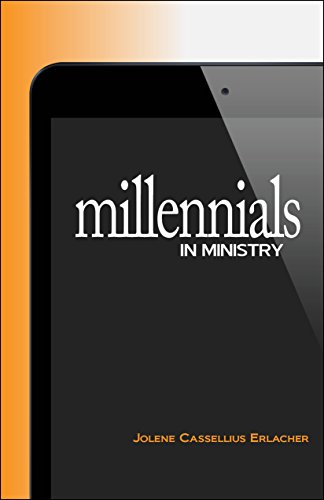
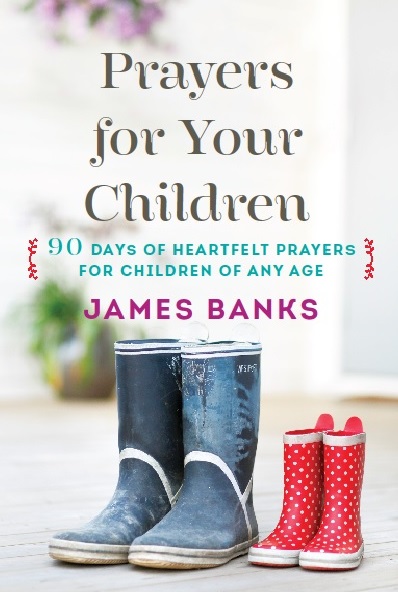

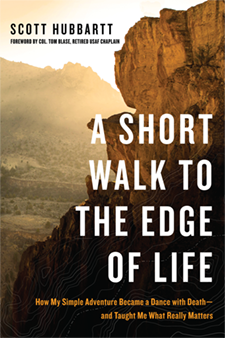

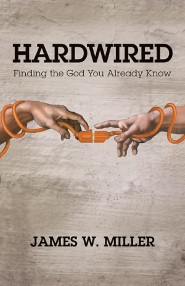

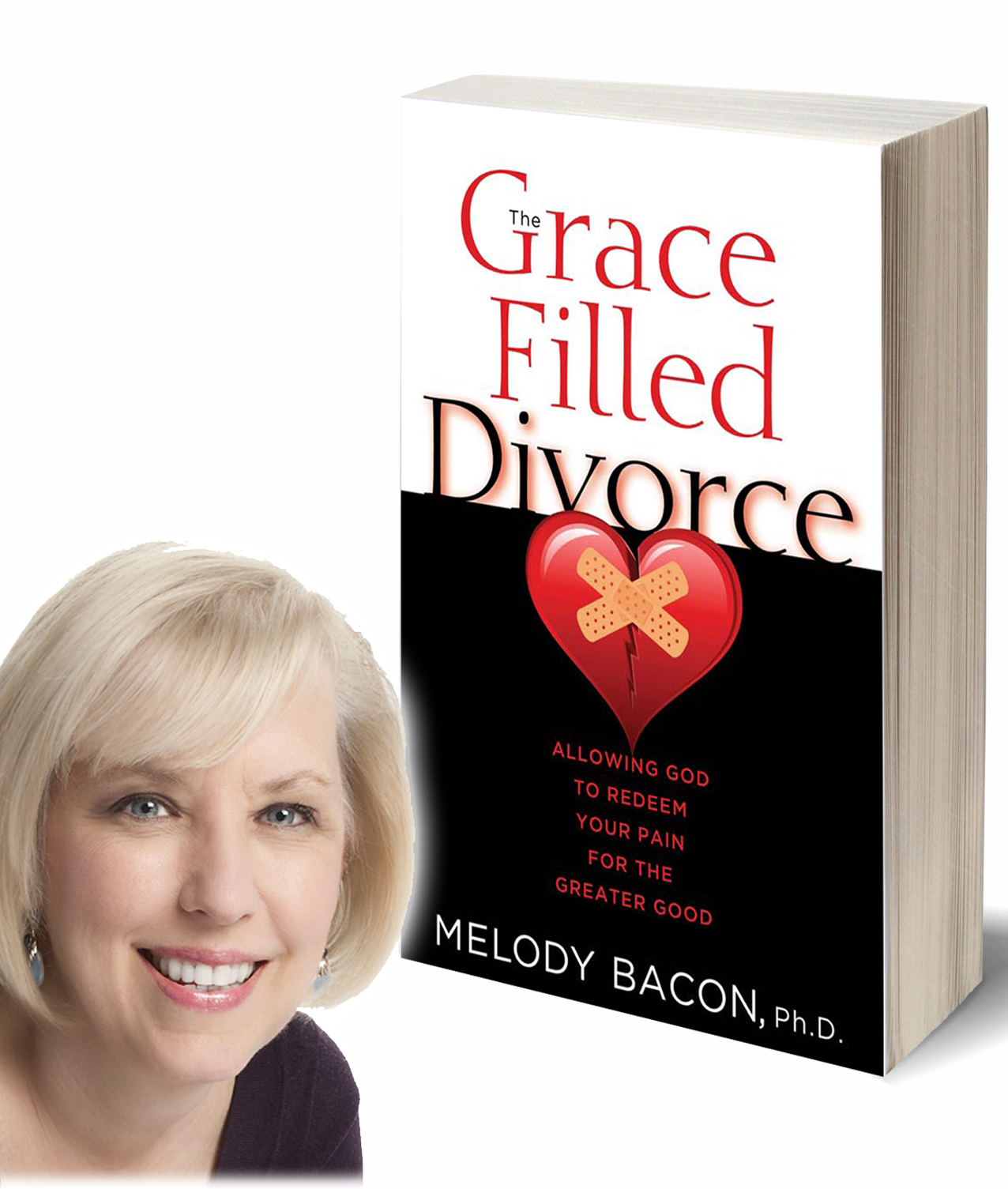
Pingback: What Is A Book Proposal? – Danielle Fetherson
Pingback: sample literary review paper – Study Tips
Pingback: Question What Resources Do You Use For Your Writing? | Go Bare Maximum with Edgar Rider